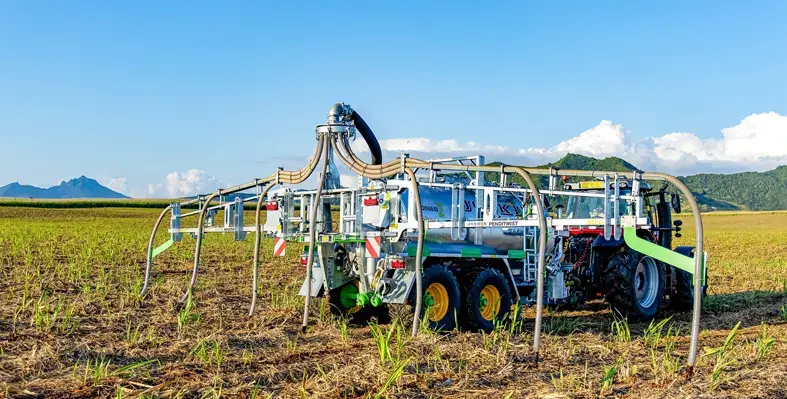Once considered a waste product, liquid manure is now recognised as a valuable fertilising resource, with some factories producing liquid wastes such as vinasse, molasses or sludge, which also contain valuable fertilising elements for agriculture
To optimise the properties of these effluents and minimise losses, particularly of ammonia, a specific spreading equipment is required. This reduction in losses limits odour nuisance and economic losses. Traditional spreading methods, such as scatterers, were imprecise and lacked homogeneity, resulting in significant nitrogen losses. In response, modern solutions, such as the JOSKIN spreading booms and injectors, ensure greater precision, better distribution and reduced losses.
JOSKIN spreading booms and implements, such as those with line hoses or skids, have transformed effluent spreading practices. Line spreading booms deposit the liquid directly at the foot of the plants, limiting contact with the air and reducing volatile losses by over 35%. JOSKIN Pendislide line spreading booms with skids, on the other hand, apply nutrients to the soil without contaminating plants, reducing volatile losses by up to 50%. The slurry tanker can also be fitted with a JOSKIN arable injector, which mixes soil and effluent. In this way, waste is used optimally and losses are practically nil.
Technological advances, combined with increasingly stringent regulations, are fostering a more sustainable agriculture. The latest generation of JOSKIN spreading implements preserves the fertilising properties of liquid effluent and reduces the cost of mineral fertilisers, making this investment more profitable. Thanks to the efficient use of livestock effluents, these innovations enable a profitable, sustainable and environmentally-friendly agriculture.





